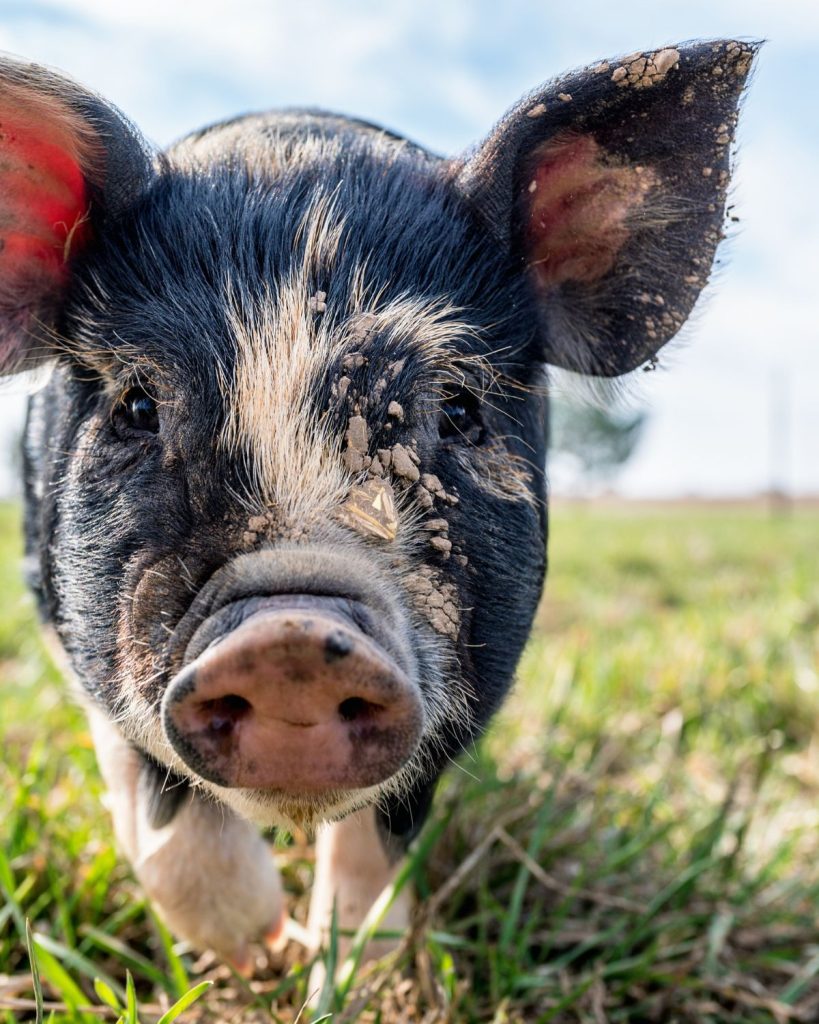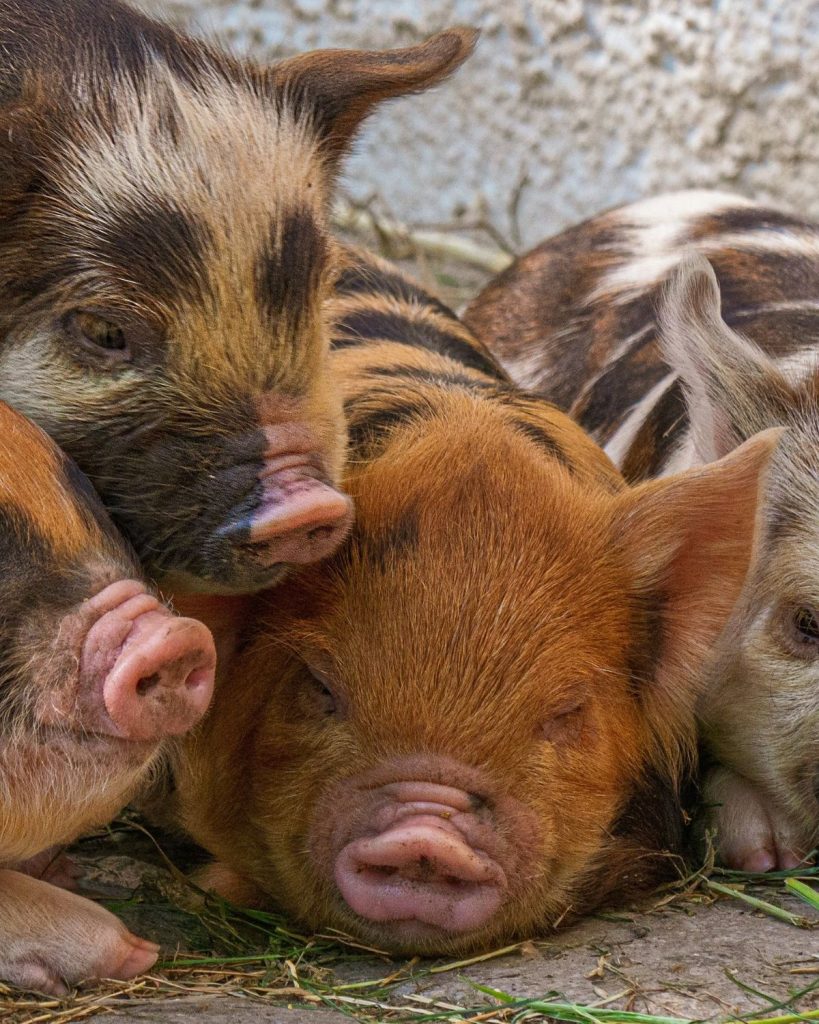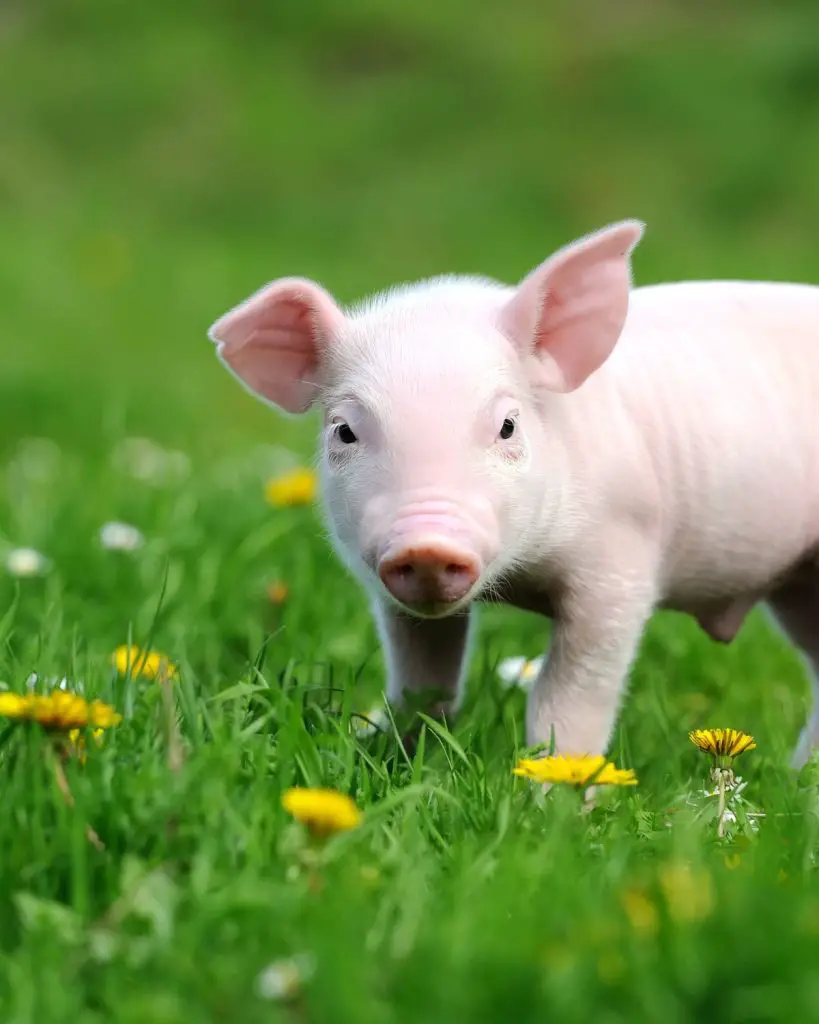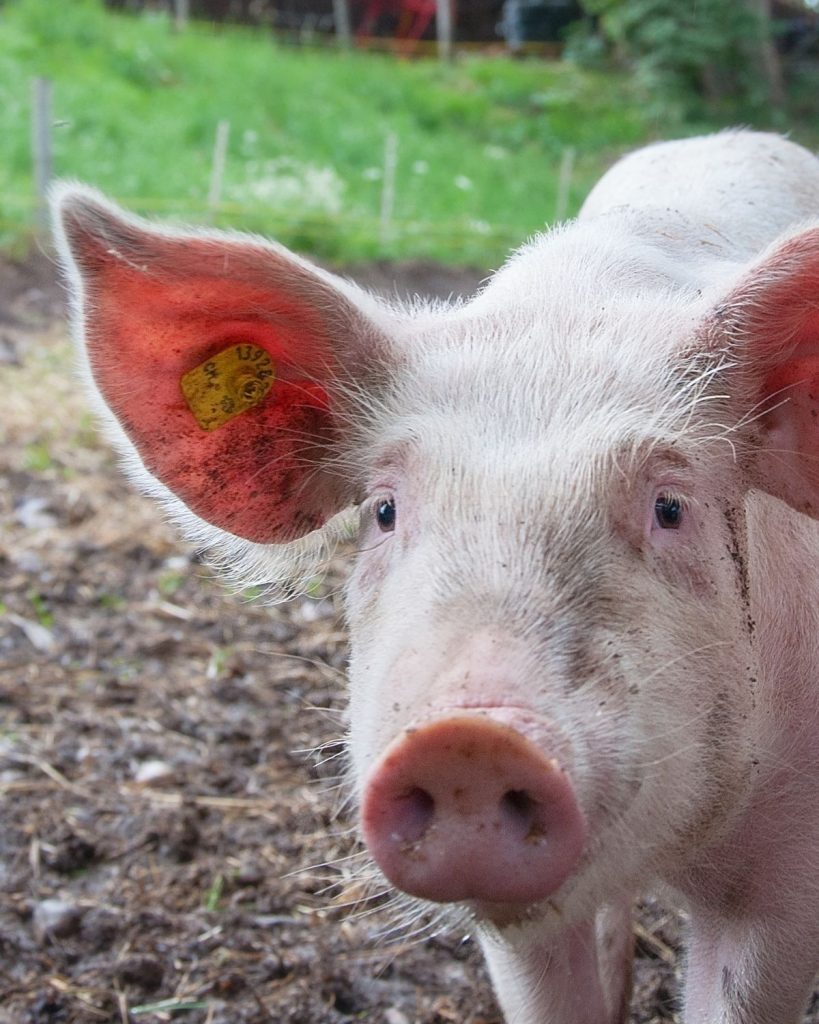What Can Pigs Not Eat on Your Homestead
Pigs are easily one of the most popular animals to have around, whether it’s as pets or on farms. They come with an undeniable charm and personality that’s hard not to love! But before you give in to your desires of having a piggy around, take time to learn more about this amazing species; especially when it comes to what they can or cannot eat safely. So let’s take a look at some food items that you should avoid giving them to keep them healthy and happy for many years ahead!
Disclosure: Some of the links below are affiliate links, meaning, at no additional cost to you, I will earn a commission if you click through and make a purchase.
Did you know that pigs are similar to humans when it comes to their diet? These single stomach animals have a lot of freedom in what they eat, which is great news for homesteaders and farmers who want to raise healthy pigs. To ensure proper growth and health, pigs have basic nutritional needs that must be met. Although some people use commercial feed or work with an animal nutritionist, using a feed ration guide is also a reliable option. Once the basic needs are met, supplementation can enhance your pigs’ health and meat flavor while reducing the costs to grow them out. However, make sure to check your state regulations on supplemental feeding if you’re selling pork. Rules vary from state to state, and some states prohibit supplemental feeding to those pigs being sold as pork.

Introducing Pigs into your Homestead and their Diet
It’s important to understand their dietary needs before bringing them to your homestead. Pigs are omnivores, meaning they eat both meat and plants. However, their diet should contain mostly vegetables and fruits, with only a moderate amount of protein from sources such as cooked lean meat and eggs. It’s also important to avoid feeding them foods that are high in salt, sugar, or fat.
Foods to Avoid Feeding Pigs
Many people believe that pigs will eat anything, but this is not entirely true! While they do have a diverse palate, there are certain foods they should not be fed. For example, pigs should never be given anything moldy, slimy, or rotten. Additionally, it’s important to avoid giving them raw meat and eggs as this can lead to the spread of disease and impact their nutritional intake. Additionally, foods that are high in salt, sugar, or fat can lead to obesity and other health issues. To keep your pigs healthy and happy, stick to a well-balanced diet and avoid these potentially harmful foods.
When it comes to the dining habits of pigs, a low-sodium, low-sugar lifestyle is key. Forget about those high-sodium snacks and meals meant for other furry friends – pigs have unique needs. And as much as we all love our pastries and candy, these sugary treats should be limited for our piggy pals. A healthy and diverse diet is crucial for happy and healthy pigs!

Healthy Options to Feed Your Pet Pig
Discover the benefits of free-range pig farming where pigs can munch on fresh grass, bugs, and roots while soaking up the minerals from the soil. This way, pastured pork becomes a nutrient-dense option. However, as with any farming practice, there are some risks. In areas with wild mushrooms, beware of the lethal death cap variety that can have deadly consequences for pigs.
Get more out of your gardening with the help of some adorable piggies! Pigs are fantastic veggie munchers, and can easily devour most of the garden’s bounty – providing a healthy and varied addition to their diet. If you’re thinking of feeding your piggies from the garden, just be mindful of what’s not on the piggy menu. Stay away from unripe tomatoes, raw potatoes, sweet potatoes, parsnips, celery, celery root, parsley, onions, avocados, and rhubarb. But don’t worry, with so many other tasty veggies to choose from, your pigs won’t go hungry. And if you’re thinking of using your piggies to help with the post-harvest clean-up, just remember to pull out any toxic plants like tomato, broccoli, cabbage, and turnips, and let the piggy power do the rest!
When it comes to feeding pigs from your garden, it’s not only important to avoid monotony but also to provide them with a variety of fruits and vegetables. The key is to keep their plates interesting and diverse, just like we strive to do for our own meals. Don’t fret if you don’t have your own garden though, as you can always inquire with local farmers or grocers if they have any produce that they’d be happy to offer for a minimal cost or even for free. After all, as the saying goes, one pig’s trash can be another pig’s treasure!
Throughout the years, we’ve been gifted with boxes of produce from various sources – a chaotic mix of fruits and vegetables. Our first priority is always to sift through the lot, discarding any moldy, rotten, or toxic specimens that we might discover. These unfortunate items find their way straight to the compost pile, where at least they can contribute something of value. What remains is sorted into two further categories: the “raw” and “cook” piles. From there, the possibilities are endless – whether it’s a fresh salad or a filling soup, we’ll make sure to make the most of every last piece.
Our farm is all about feeding our pigs the freshest and most delicious produce possible. We’ve noticed that just like humans, pigs can be picky eaters, and sometimes they turn their snouts up at certain raw veggies. Take zucchini, for example – we had a whole crop of it growing and some of our pigs wouldn’t touch it! But we’re not ones to waste perfectly good produce, so we got creative. We started cooking the zucchini with other pig-favorite foods like potatoes and dairy, creating a slop that our happy pigs couldn’t resist. Not only were we avoiding food waste, but we were also making sure our pigs were getting all the nutrients they needed to thrive.

What to Feed Baby Pigs
When it comes to feeding baby pigs, it’s important to provide them with a balanced diet that meets their nutritional needs. A diet consisting of mostly milk, supplemented with a small amount of solid food, is recommended for piglets under 3-4 weeks old. As they grow, their solid food intake can increase gradually. Good options for solid food include commercial pig feed, fruits and vegetables, and grains like corn and wheat. It’s also important to make sure they have access to fresh water at all times. With the right diet, baby pigs can thrive and grow into healthy adults.
Foods that are Toxic for Pigs
Pigs will eat just about anything, but it’s important to be aware of foods that can be incredibly harmful or even fatal to them. One of the biggest culprits is chocolate. While humans enjoy this sweet treat, pigs don’t have the necessary enzymes to digest it properly. Another food that’s toxic for pigs is avocado. The persin toxin found in avocados can cause severe heart damage or even death in pigs. In addition, many pig owners might not realize that the onion family, including garlic and chives, is also a no-no for their beloved porkers. These foods can cause anemia and damage to the red blood cells. So, next time you’re considering feeding a little treat to your pig, make sure to double-check that it’s not on the toxic list.
Signs of Health Problems in Pigs Caused by an Unbalanced Diet
As animals that are commonly raised for human consumption, pigs need a balanced and nutritious diet to thrive. If their diet is unbalanced or lacking in essential nutrients, this can lead to a host of health problems. Some possible signs of health issues in pigs caused by an unbalanced diet include stunted growth, weight loss, digestive problems, skin problems, and even behavioral changes. Farmers and pig owners need to be vigilant in ensuring that their pigs are receiving a well-rounded diet with all necessary nutrients to avoid these negative outcomes.

In conclusion, owning a pig as a pet can introduce you to the enjoyable responsibility of caring for and providing the best nutrition possible for your pet. Pigs may be surprisingly sensitive when it comes to their diet and so understanding what is safe and healthy to feed them is essential. To avoid health related issues, feed only the appropriate foods tailored specifically for pigs, such as carrots, apples, oats, alfalfa hay, barleygrass and potato peelings. Make sure you are aware of what can’t be eaten as well; pork products, sweets, dairy products and onions should all be avoided. Furthermore watch out for signs of health problems such as a picky appetite or sudden weight loss due to an unbalanced diet. Through knowledge and responsible ownership you can give you pig the happiest life it can have!
You may also enjoy these related articles:
- Best Chicken Breeds for Kids
- How to Create a Chicken Garden
- What Is Chicken Grit? and When to Feed Chickens Grit
Did you enjoy this article? Want to hear more? Stay in touch! Sign up below to receive weekly tips and inspiration for your homestead.

